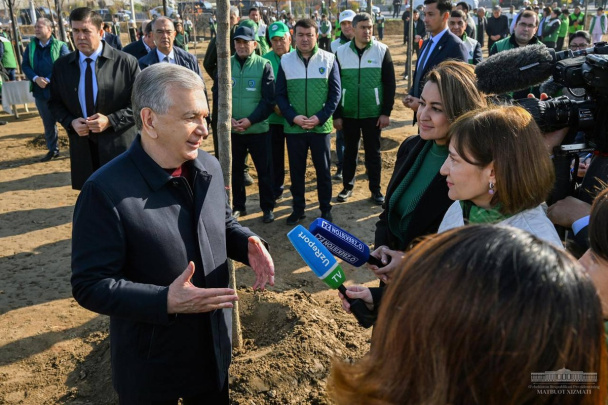During the meeting, President Mirziyoyev identified deficiencies in the establishment of food reserves as a contributing factor to the price hikes. He pointed out that 18 districts and cities have faced challenges in supplying staple products, including meat, potatoes, carrots, onions, and rice. Notably, the administrations of Tashkent, Syrdarya, and Khorezm regions have reportedly failed to allocate funds for food stockpiles.
In response to the current situation, the General Prosecutor's Office, the Competition Committee, and other relevant authorities have been tasked with forming working groups to monitor prices across the region. Immediate measures will be implemented in areas with the highest prices to stabilize the markets effectively.
Local governors have been instructed to create additional food reserves, with an expected volume of 620,000 tons. This initiative aims to ensure a more reliable supply of essential products to local communities.
The president also addressed the agricultural sector, noting that only 100,000 hectares of land — about 1% of the total area — are currently cultivated in the Navoi region. Despite accounting for 43% of Uzbekistan's pastures, the region produces less than 5% of the country’s livestock products. Additionally, local fish farms utilize 23,500 hectares of water bodies, with only 15% employing intensive farming methods, resulting in low productivity rates of just 2-3 tons of fish per hectare.
To bolster agricultural output, Mirziyoyev announced plans to utilize drones for planting on 350,000 hectares annually, focusing on suitable fodder, medicinal, and other crops. This initiative will provide land to 50,000 local residents for orchards and pastures.
The president emphasized the importance of improving seed quality and cotton farming technologies to achieve a yield of 70 centners per hectare. Furthermore, he called for the rejuvenation of 7,000 hectares of orchards and vineyards, as well as the introduction of sunflowers as a catch crop on 10,000 hectares.
In an effort to combat unemployment and poverty, the government aims to create job opportunities for 140,000 individuals through small businesses, livestock farming, agriculture, and fisheries. The initiative is expected to lift 16,000 families out of poverty, contributing to the overall economic development of the region.






